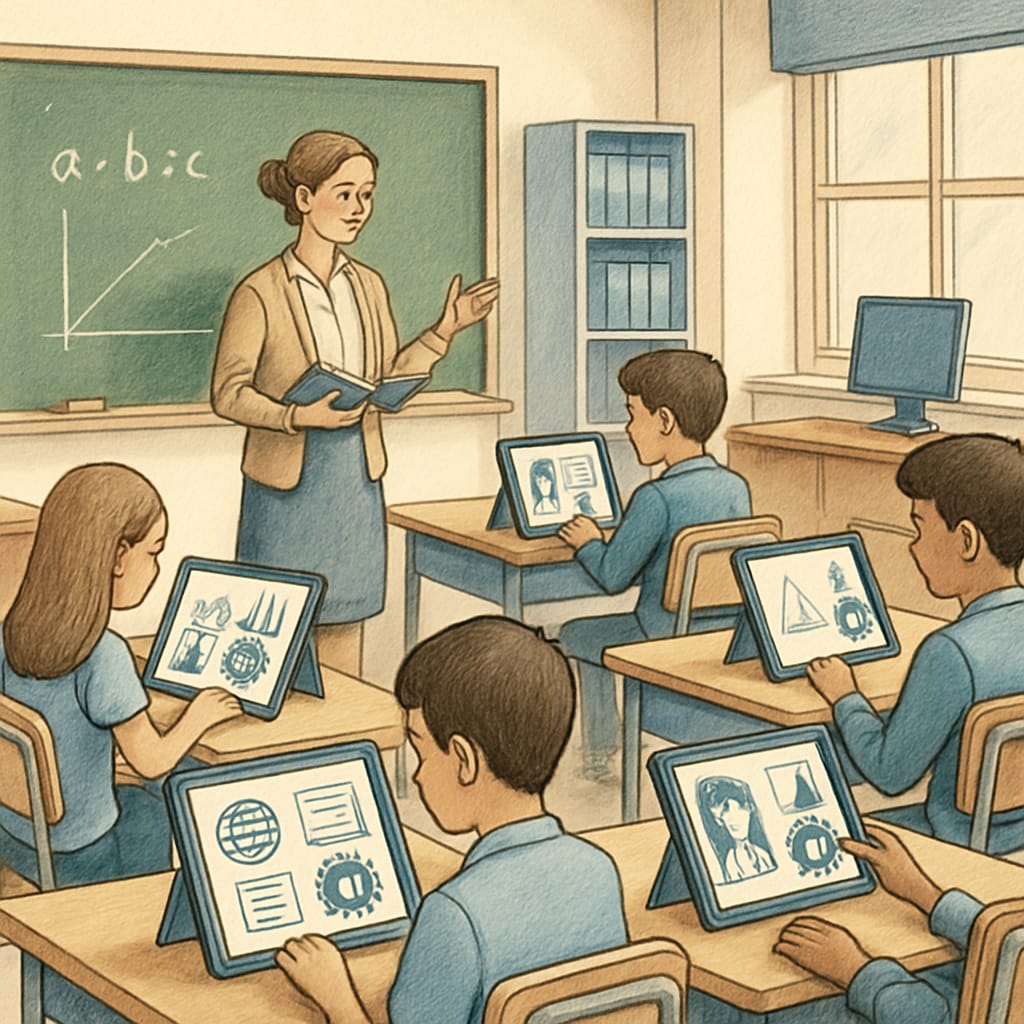The rapid development of artificial intelligence (AI) is set to profoundly impact education over the next decade. In K12 education, AI promises to revolutionize teaching methods, learning experiences, and assessment systems. This transformation raises significant opportunities for educators, students, and parents alike, as technology becomes an essential partner in delivering smarter, more adaptive education. How exactly will AI shape the future of education, and what can we expect from its integration into the classroom?
AI-Driven Personalization: A New Era of Tailored Learning
One of AI’s most significant contributions to education lies in its ability to personalize learning experiences. Traditional classroom settings often struggle to address the diverse needs of every student. However, AI-powered tools can analyze individual learning patterns, strengths, and weaknesses, enabling the creation of customized learning plans. For example, platforms like Khan Academy already use AI to provide adaptive exercises tailored to each student’s pace.
In addition to individualized lesson plans, AI can also offer real-time feedback. This allows students to correct mistakes immediately and learn from them, promoting a deeper understanding of the material. As a result, students who struggle with specific subjects receive targeted support, while advanced learners can accelerate through the curriculum.

Revolutionizing Teaching Methods with AI
For educators, AI offers tools that can streamline teaching processes and enhance lesson delivery. Intelligent virtual assistants, for instance, can handle administrative tasks such as grading assignments or creating lesson plans, freeing up teachers to focus on engaging directly with students. Additionally, AI-powered chatbots can assist in answering common student queries, extending support beyond the classroom walls.
Moreover, AI can facilitate experiential learning through immersive technologies like virtual and augmented reality. These tools enable students to explore historical events, conduct virtual science experiments, or even simulate real-world problem-solving scenarios. According to a study by Britannica, such technologies not only improve engagement but also enhance retention rates by making abstract concepts tangible.

Transforming Educational Assessment and Evaluation
Assessment methods in education have traditionally relied on standardized testing, which often fails to capture the full spectrum of a student’s abilities. AI has the potential to redefine evaluation by implementing dynamic, competency-based assessments. These systems can measure not just rote memorization but also critical thinking, creativity, and problem-solving skills.
Furthermore, AI-driven analytics can track long-term student progress and identify patterns that may not be visible to human observers. For instance, predictive algorithms can alert educators to students who may be at risk of falling behind, enabling early intervention. This data-driven approach ensures that no student is left unnoticed and provides actionable insights to improve teaching strategies.
Addressing Challenges and Ethical Considerations
While the benefits of AI in education are evident, its integration also raises important ethical concerns. Issues such as data privacy, algorithmic bias, and the digital divide need to be carefully addressed. Schools must ensure that AI tools protect student information and operate transparently to avoid reinforcing existing inequalities.
In addition, educators must balance technology use with traditional teaching methods. While AI can enhance learning, human interaction remains irreplaceable in fostering critical social and emotional skills. As AI becomes more prominent, a hybrid approach that combines technological innovation with empathetic teaching will likely yield the best results.
The Road Ahead: Preparing for a Smarter Educational Future
As AI continues to evolve, its role in education will undoubtedly expand. Over the next decade, we can expect smarter classrooms equipped with adaptive learning systems, immersive technologies, and data-driven insights. However, the success of this transformation will depend on collaboration between educators, technologists, and policymakers. By working together, we can ensure that AI enhances education equitably and effectively.
For parents and teachers, the key lies in embracing these changes with an open mind. By understanding the potential of AI and addressing its challenges, we can prepare students for a future where technology and human intelligence work hand in hand to achieve new heights in education.
Readability guidance: This article uses clear headings, concise paragraphs, and frequent transitions to maintain reader engagement. Key points are summarized in lists where appropriate, and technical terms are explained for accessibility.


